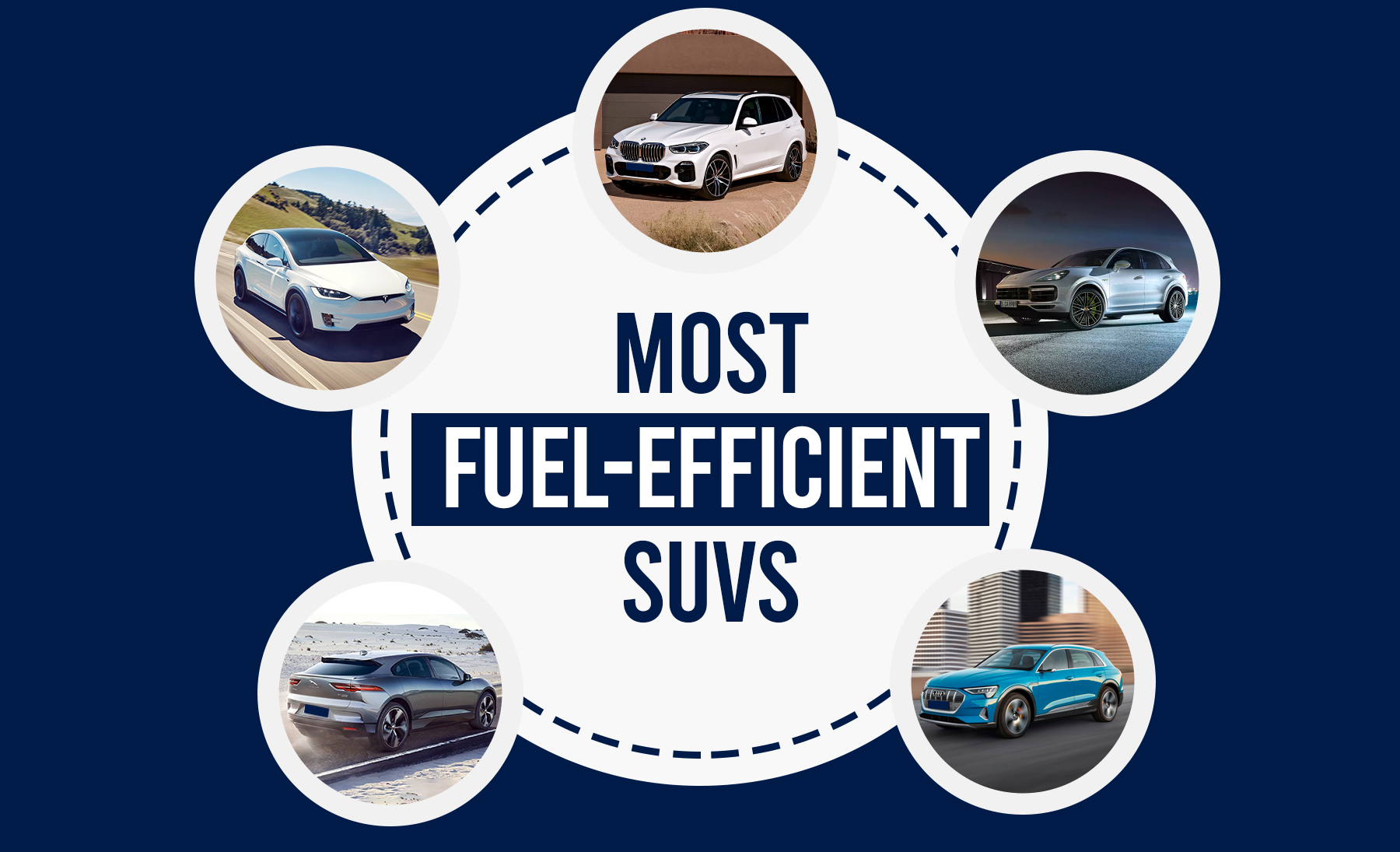There are plenty of reasons why some people prefer SUVs over sedans. Maybe you like a higher seating position, or you just want an SUV because it’s easier to navigate through rough terrains or winter roads. Perhaps you’re just too tall for a standard sedan or maybe you need something big enough for the whole family (that’s also cooler than your Mom’s mini-van).
Whatever your reasons, you’re probably familiar with the notion that SUVs are fuel guzzlers, and if you want to save some money, you’re better off with sedans. Well, not anymore since the introduction of electric and hybrid vehicles.
Thanks to the electrical/hybrid vehicle technology, you can enjoy driving SUVs without spending too much money on fuel. Let’s have a look at the nine most fuel-efficient SUVs currently available.
Most Fuel-Efficient SUVs
- Tesla Model X
- BMW X5
- Porsche Cayenne S E-Hybrid
- Jaguar I-PACE
- Mitsubishi Outlander PHEV SEL
- Toyota RAV4 Hybrid XLE
- Audi e-tron SUV
- Hyundai Kona Electric
- Kia e-Niro EV
Tesla Model X
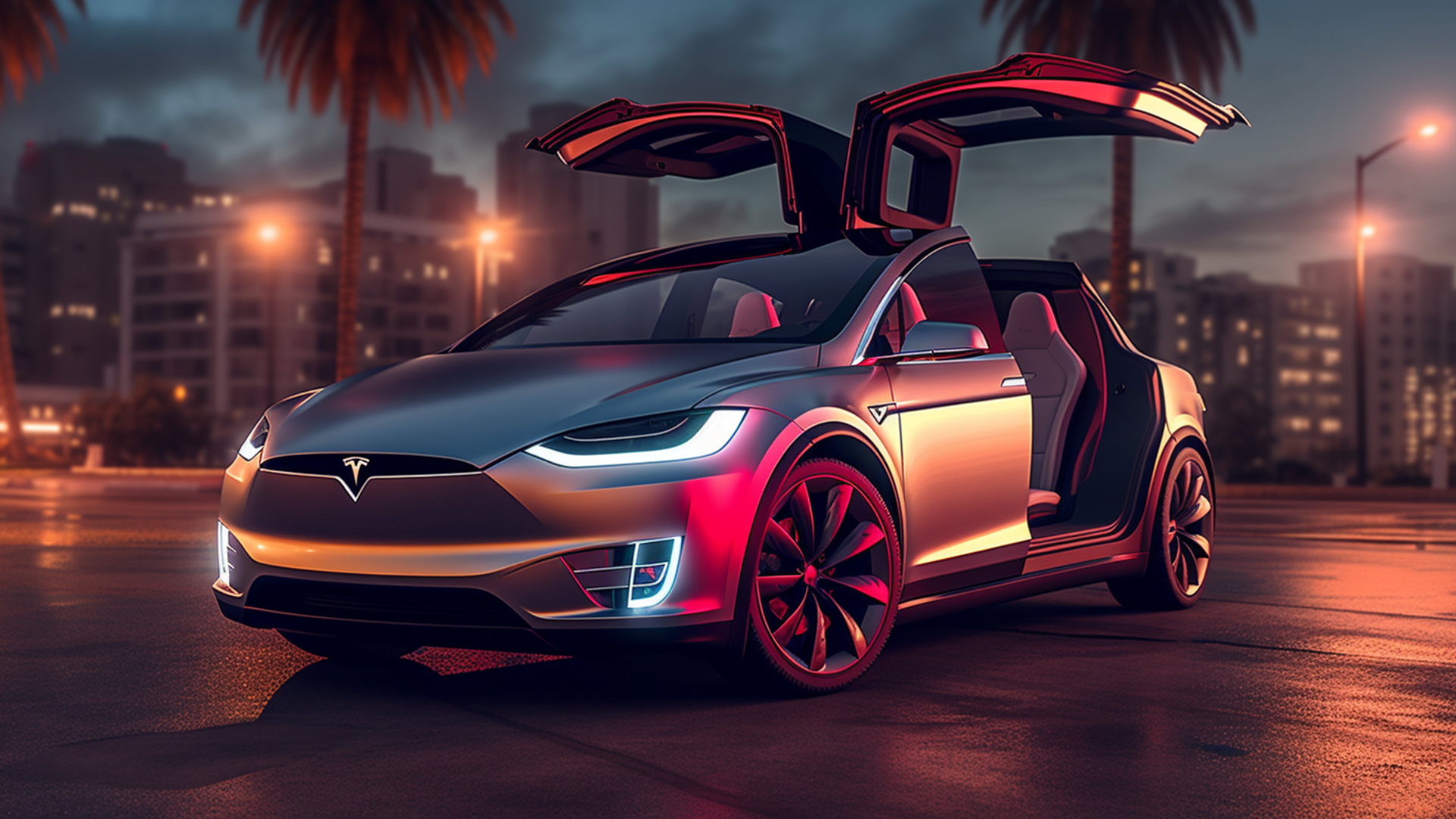
Starting Price: $84,990
MPG equiv: 103
C02 Emission: Zero
Max Cargo Space: 88 cubic feet
Electric Range: 325 miles
Level 2 Charging Time: 10 hours
The Tesla Model X is an exceptional SUV; it entered the Guinness book of records after towing a 287,000 pounds Boeing 787-9 Dreamliner back in 2018. Not impressed yet? It received a 5-star safety rating from NHTSA and became the first SUV to achieve that feat.
The Tesla Model X can travel up to 325 miles after a full charge on a 75kWh battery capacity. How much does that help you save? Suppose the electricity cost is 10 cents per Kwh in Washington DC and you charge to a full battery, it would probably cost you about $9 for the entire mile’s range – give or take a few cents. Compare that with the average gasoline SUV getting around 24 MPG, if the current price per gallon in Washington D.C is $2.30, it would cost an additional $20+ to travel that same 325 miles.
If space is your problem, the Tesla Model X can accommodate up to 7 passengers – two more people than the Tesla Model S. Additionally, you don’t have to wait for the power to build when you want to accelerate; just step on it, and it will jump from 0 to 60 miles per hour in only 2.7 seconds.
BMW X5

Starting Price: $58,900
MPG equiv: 83
C02 Emission: 77g/km
Max Cargo Space: 72.5 cubic feet
Electric Range: 54 miles
Level 2 Charging Time: 1 hour and 30 minutes
The 2020 BMW X5 has a plug-in hybrid model that is powered by a 6 cylinder gasoline engine with twin-turbo and a 9.2 kWh battery to improve fuel economy. On a full charge, the battery can give you at least 54 miles range. Sure, that range isn’t much if you compare it to full electric SUVs, but if you combine both gasoline and electric motor, the BMW X5 can deliver a fuel economy of 83 miles per gallon; that’s if the battery is fully charged.
The 8-speed automatic transmission and the all-wheel-drive system works even when the gasoline engine is off, and it can achieve a full speed of 87 miles per hour on electric power alone. The acceleration speed from 0 to 62 miles per hour can be done in 5.6 seconds, and the overall top speed is 146 miles per hour. Of course, all credits go to its two drive units with a total output of 394 horsepower.
Even though it can only fit five passengers, it is a luxurious SUV with the latest driver assistance technology and integral active steering. Not to mention, it features a 360-degree camera view that lets you see your car from a 3rd person perspective.
Porsche Cayenne S E-Hybrid

Starting Price: $161,900
MPG equiv: 46
C02 Emission: 79g/km
Max Cargo Space: 56.8 cubic feet
Electric Range: 20 miles
Level 2 Charging Time: 2 hours
With a fully charged battery, the Porsche Cayenne S E-Hybrid has a fuel economy equivalent to 46 miles per gallon. That’s not too bad for a hybrid vehicle with a 14.1 kWh battery and a 3-liter turbocharged V6 engine. Beyond that, it’s one of the fastest fuel-efficient SUVs with a top speed of 157 miles per hour. C’mon, what did you expect from Porsche? If you think that’s impressive, its Turbo version is an overkill with 670 horsepower that can accelerate 60 miles per hour in just 3.6 seconds.
Like most hybrid vehicles, it recovers energy after braking, but you can still plug it in and recharge the battery directly. For short trips like going out to the mall or the office, you can use the electric motor independently for up to 20 miles. Alternatively, instead of wasting gas while stuck in traffic, you can switch to an electric motor for efficiency.
For the safety features, it comes with backup cameras, park assist, blind-spot monitoring, night vision, and automatic emergency braking.
Jaguar I-PACE
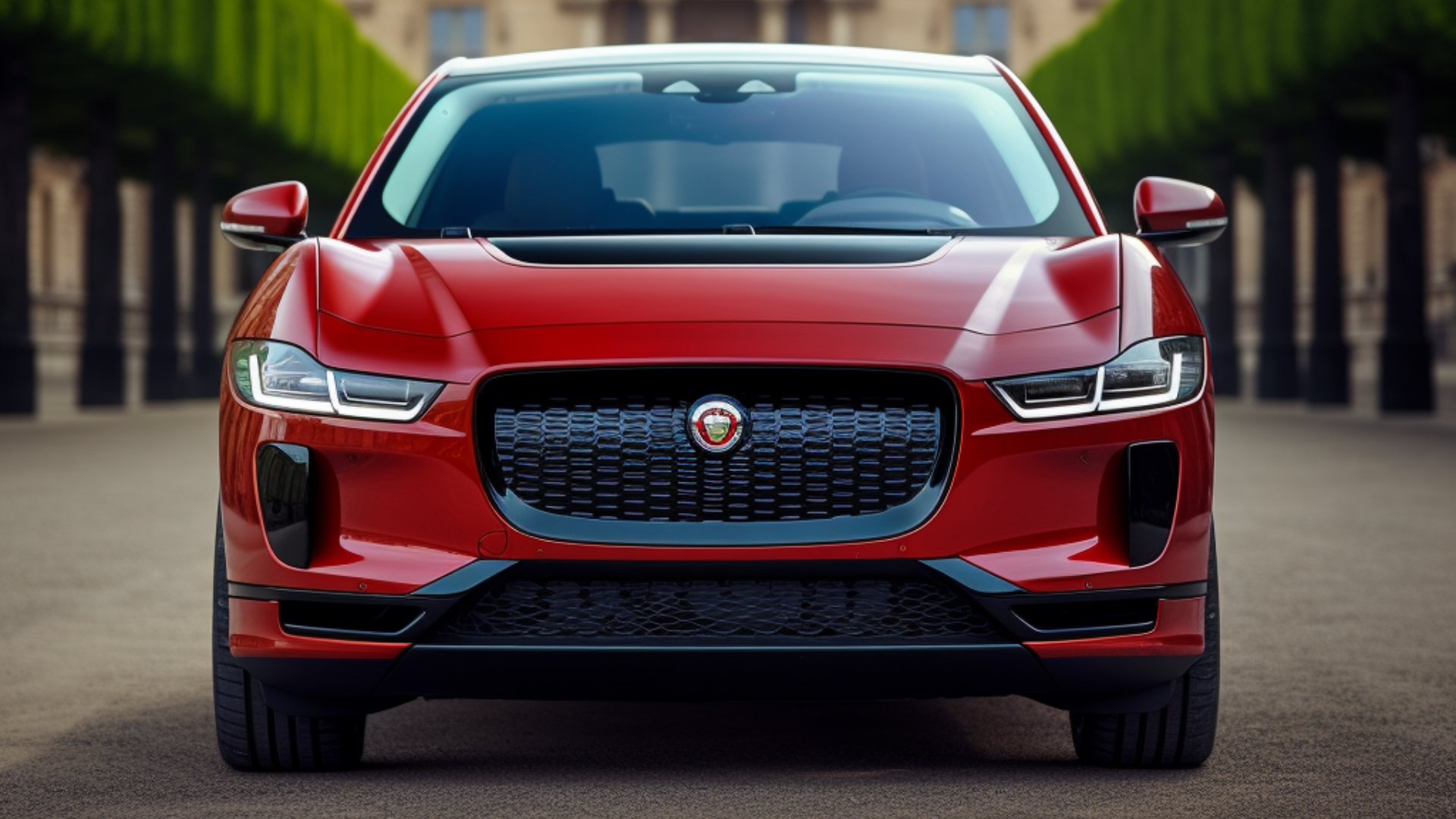
Starting Price: $70,000
MPG equiv: 80
C02 Emission: Zero
Max Cargo Space: 51 cubic feet
Electric Range: 234 miles
Level 2 Charging Time: 12 hours
The Jaguar I-PACE is Jaguar’s first electric vehicle and widely considered to be a direct competitor of the Tesla Model X. It’s designed with an 80 kWh lithium-ion battery that can provide a range of 234 miles. Besides that, it can accelerate from 0 to 60 miles per hour in less than 5 seconds.
As for the charging time, it can cover up to 162 miles if you plug it for an hour using a 50Kw DC rapid charger. If you want it done faster, you can use a 100KW DC supply and supercharge it to 80 percent in 45 minutes.
From the outside, it looks like a sporty SUV with a short nose and a long wheelbase. To be precise, it is about 15 feet, 6 inches long from the front to rear and 6 feet, 6 inches wide from side to side. It can accommodate five passengers and tow up to 1,600 pounds.
Since it is a fully electric SUV, it has a better fuel economy than any hybrid or gasoline/diesel-powered SUV.
Mitsubishi Outlander PHEV SEL
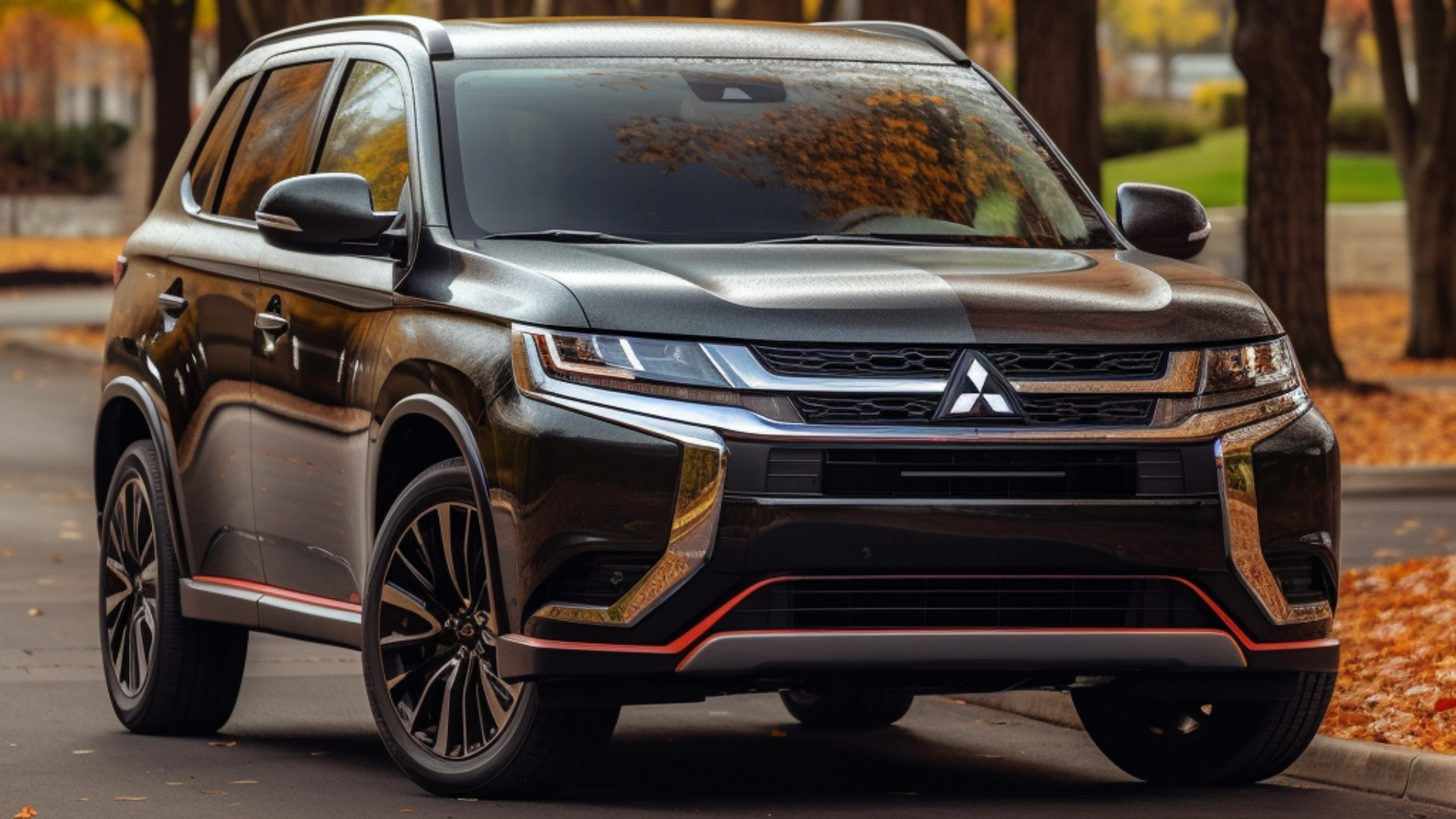
Starting Price: $37,025
MPG equiv: 74
C02 Emission: 46g/km
Max Cargo Space: 66.6 cubic feet
Electric Range: 234 miles
Level 2 Charging Time: 2 hours
If you didn’t know, the Mitsubishi Outlander PHEV is one of the top-selling hybrid vehicles in the world. The high demand can be attributed to its hybrid technology that makes it cheap to fuel. For instance, if you charge the battery every night and travel short trips, it’s possible to have a fuel efficiency equivalent to 74 MPG. However, if you just use the petrol engine alone, the fuel economy will reduce significantly.
Speaking of the electric motor, it’s powered by a 13.8kWh with a range of 22 miles. Most fast charge outlets can charge the battery to about 80 percent in about 25 minutes; that’s enough time to eat your lunch. But if you’re too busy, the petrol engine can be used as a generator to produce electricity for the electric motor. Also, you can activate regenerative braking to conserve energy. How cool is that?
On the inside, the 7-inch display is standard, just like Apple CarPlay and Android Auto. What’s more, it features smart key, reverse camera and sensors, hill start assist, adaptive cruise control, lane change assist, and blind-spot warning.
Toyota RAV4 Hybrid XLE
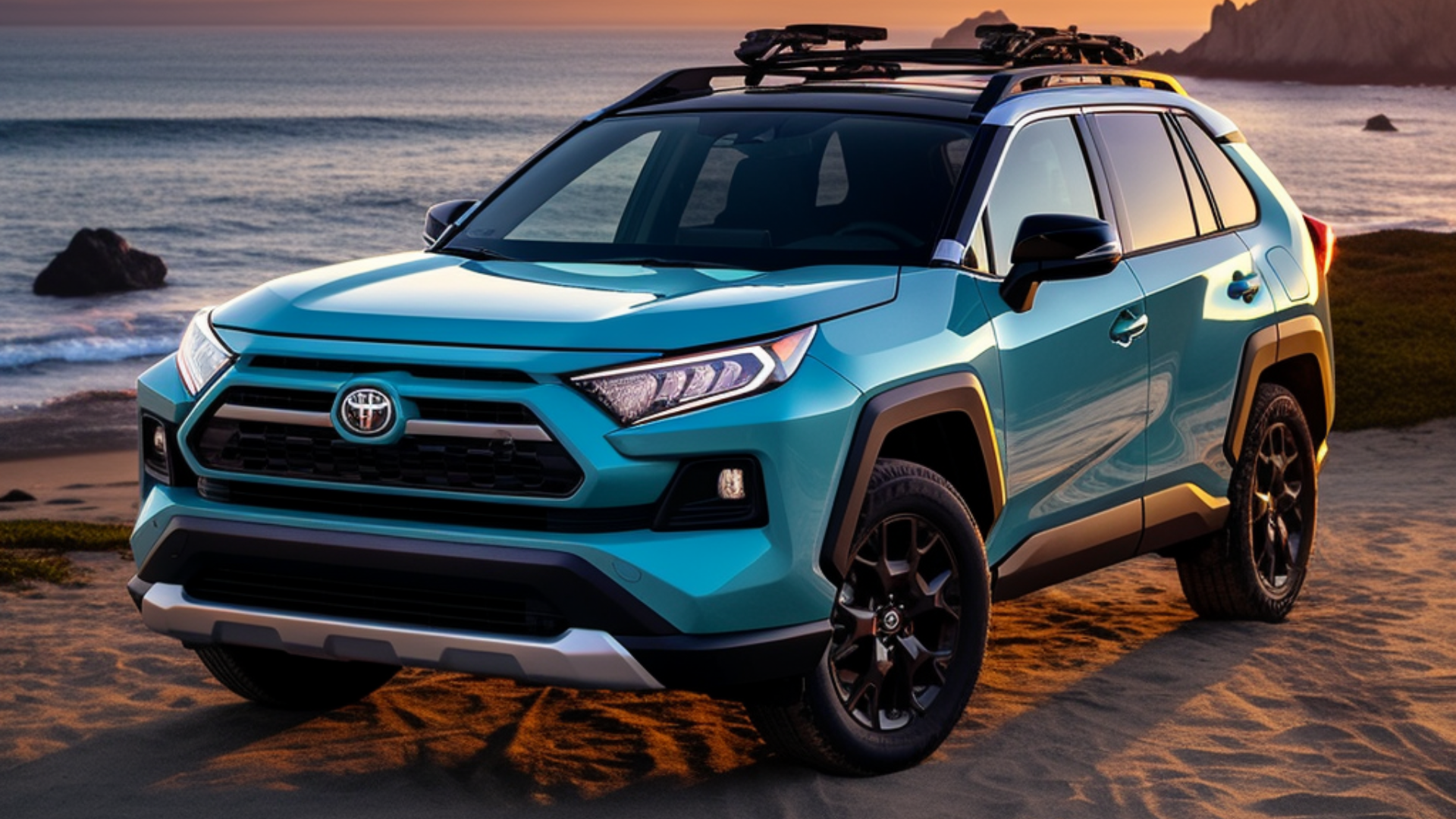
Starting Price: $29,395
MPG equiv: 40
C02 Emission: 30g/km
Max Cargo Space: 69.8 cubic feet
Electric Range: 39 miles
Level 2 Charging Time: 2 hours and 30 minutes
It’s not surprising that Toyota decided to offer a hybrid model based on its most successful SUV. But is it worth the hype? The Toyota RAV4 Hybrid is powered by a 2.5 liter naturally aspirated four-cylinder engine plus two electric motors; one electric motor is located at the front, and the other motor is at the rear, making it an all-wheel-drive SUV.
The batteries are located under the rear seats, making the interior space no different from the gasoline version. You still get the same five-passenger capacity and a cargo area that easily fit at least ten suitcases. Moreover, it increases the towing capacity to 1750 pounds, which is better than the gasoline model.
To improve fuel efficiency, it uses a technology known as ‘predictive efficient drive.’ Basically, it studies the maps and predicts your driving patterns to help the engine generator to switch between a gasoline engine and electric motor when necessary to optimize efficiency. In other words, it’s a self-charging SUV that utilizes a petrol engine generator and regenerative braking system to power the electric motors.
Audi e-tron SUV
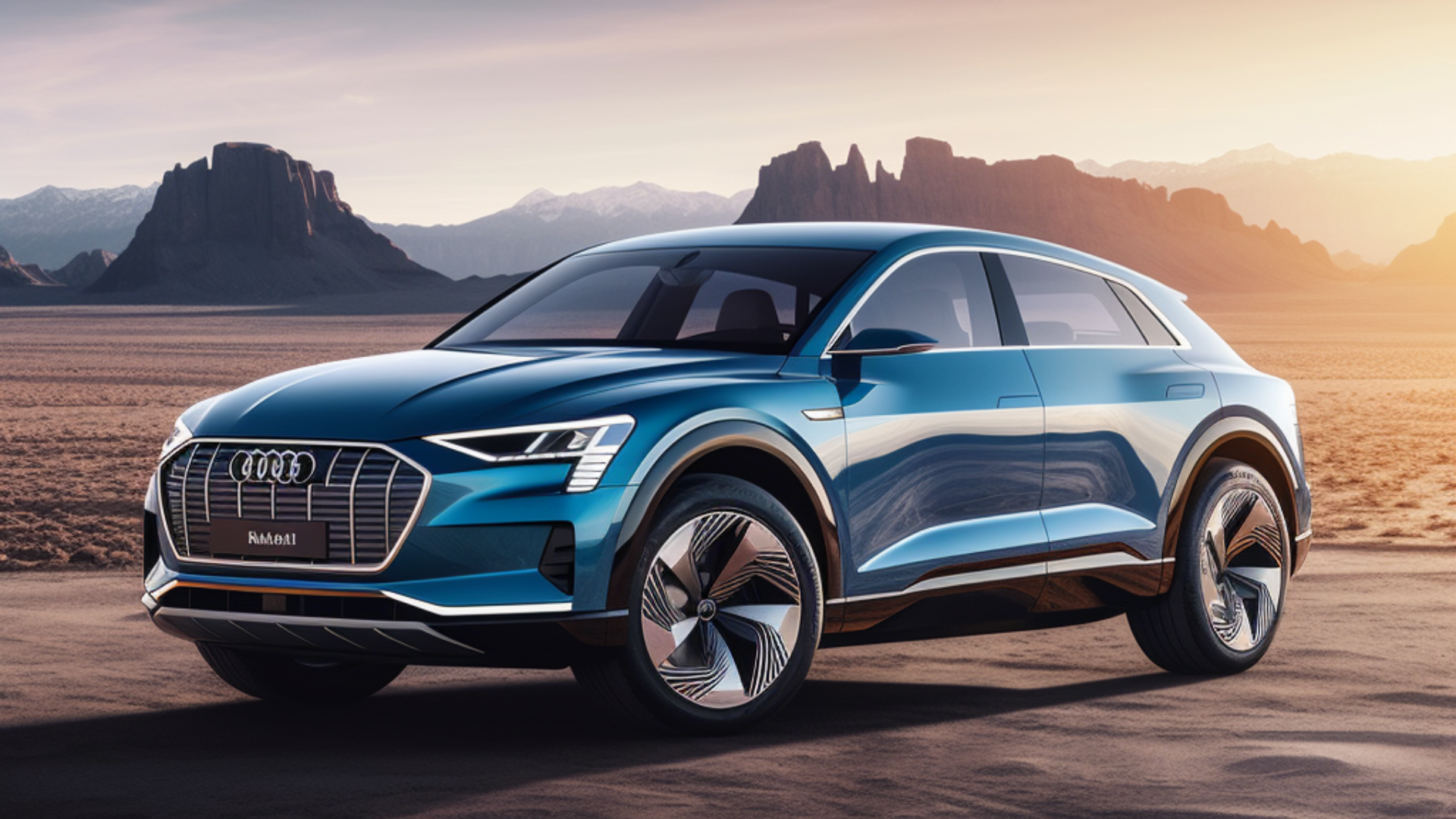
Starting Price: $56,121
MPG equiv: 74
C02 Emission: Zero
Max Cargo Space: 57 cubic feet
Electric Range: 204 miles
Level 2 Charging Time: 9 hours
Finally, Audi released its first mass-produced full electric vehicle, and it’s an SUV. The e-tron is fitted with an 86 kWh battery that can drive 204 miles after a charge. If you connect it to a 240-volt outlet, you will wake up to a fully charged battery every morning. However, if you’re in a hurry, you can get a 54 miles range out of a 10 minutes fast charge. Extend it a little bit to 30 minutes, and you will get 160 miles range.
The performance is exceptional, considering it can produce 402 horsepower. The torque is instant, and it can accelerate up to 60 miles per hour in less than 6 seconds. The towing capacity? Well, it’s Hercules, and it can drag 4,000 pounds of weight.
Sure, the buying price is higher than a typical gasoline SUV, but you will get a $7500 tax incentive. But that’s not all; Audi offers free charging up to 1,000 KWh for the first four years at any Electrify America station. Not to forget, you won’t be paying parking taxes in most cities. Either way, even if you spend on fuel, it would be half as much as what you would spend on gasoline engines.
Hyundai Kona Electric
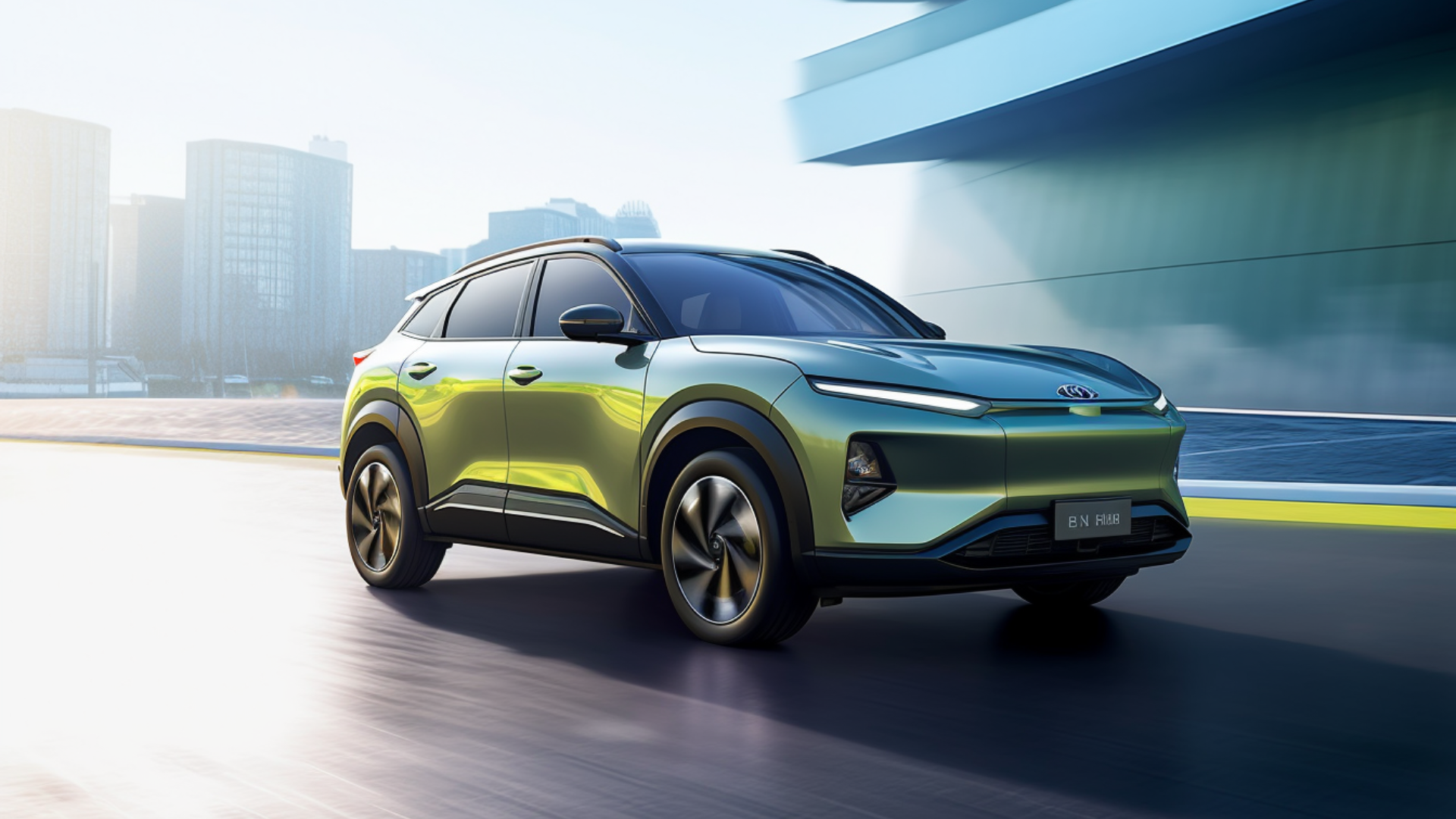
Starting Price: $37,000
MPG equiv: 120
C02 Emission: Zero
Max Cargo Space: 45.8 cubic feet
Electric Range: 258 miles
Level 2 Charging Time: 9 hours and 35 minutes
The Hyundai Kona Electric came into the scene with a bang winning an award for the best North America Utility Vehicle in 2019. Did it deserve it? Go figure; it’s one the cheapest fully electric SUVs on the market, yet it delivers high miles range that can be compared to premium EV models. In short, it’s a $37,000 EV that can achieve a 258 miles range. If you deduct the $7,500 tax credit when filing returns, it would be like you bought it for $29,500.
Even the 64kWh battery exceeds expectations, and the best part is that you can recharge it to 80 percent in about 54 minutes. However, any other type of charger below 100kW, and it would take longer, but the fuel efficiency would still be equivalent to about 120 MPG on a full battery. Also, it features regenerative braking, so it will recharge itself every time you slow down.
Besides its lower than average price tag, buyers get a full warranty on the battery covering eight years or 100,000 miles.
Kia e-Niro EV
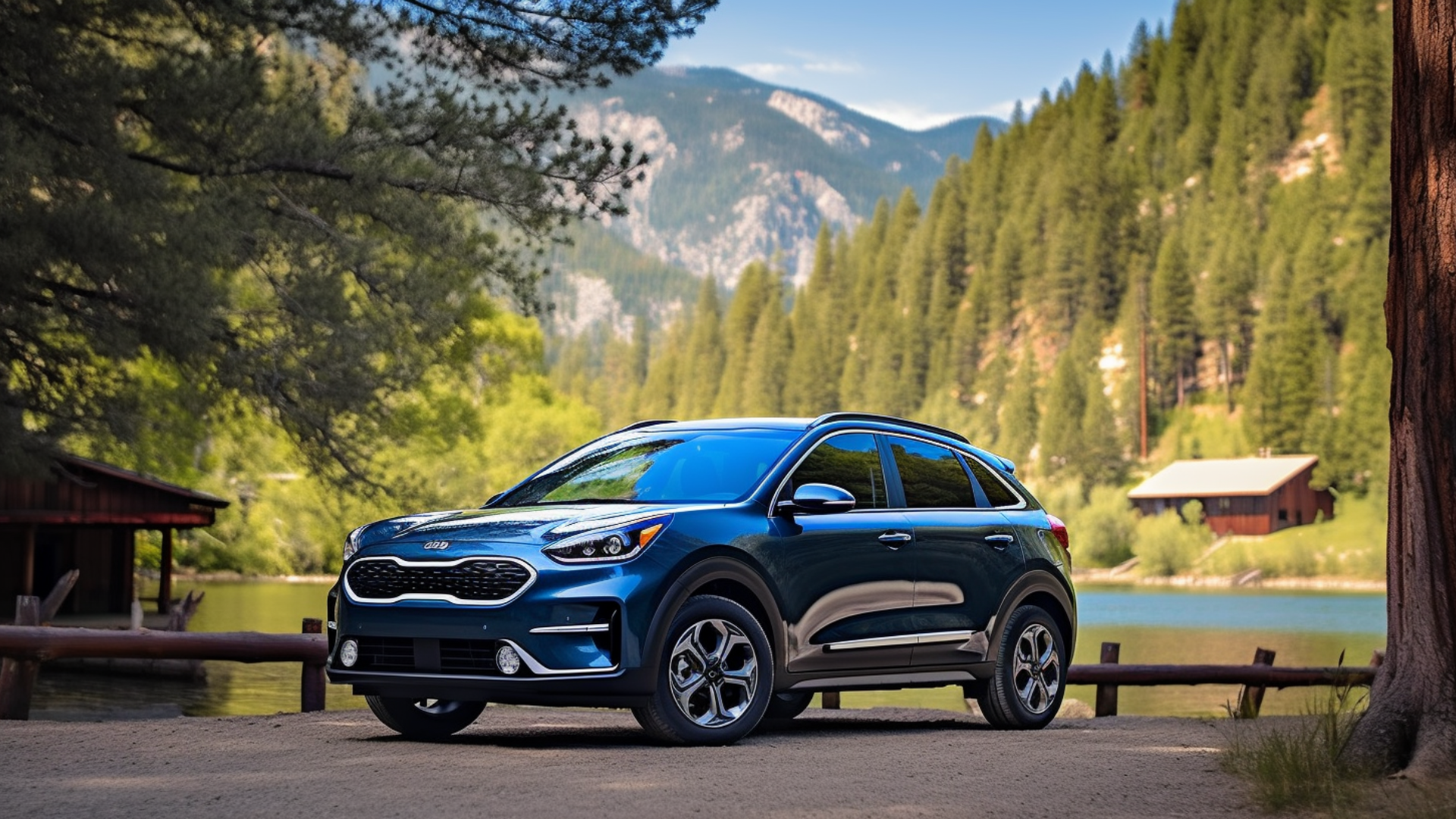
Starting Price: $38,500
MPG equiv: 112
C02 Emission: Zero
Max Cargo Space: 53 cubic feet
Electric Range: 239 miles
Level 2 Charging Time: 9 hours and 35 minutes
The Kia e-Niro EV isn’t so different from the Hyundai Kona Electric; both brands are native to South Korea. First, you can get it for less than half the price you would pay for a Tesla Model X. Secondly, it’s powered by a 64kWh battery. Even so, the Kia e-Niro EV can deliver 239 miles range.
As for the charging, a 7kw charger installed at your home takes 9 hours and 50 minutes to fully charge the Kia e-Niro EV. For a faster charge, you can plug in a 50Kw cable and fill the battery to 80 percent in just 75 minutes. But if you unplug it after 30 minutes, you can still do at least 100 miles range.
Since it’s an SUV, it offers plenty of rear legroom that stretches up to 36 inches and cargo space that can fit five carrier suitcases. The cool thing is that it doesn’t have noise or vibrations, and neither does it lose composure when it hits a pothole. Of course, it comes with standard safety features such as advanced driver assistance, automatic emergency braking, smart cruise control, and seven airbags.
Conclusion
While there may be fewer electric and hybrid SUV options available in the market today, the few electric/hybrid SUVs that we’ve reviewed will save you a lot of money in the long run. Plus, as technology improves and the demand for fuel-efficient SUVs increases, we’ll continue to see more and more automakers invest in making newer and better models.
No more spending twice as much on fuel just because you drive an SUV. In fact, you would probably spend half as less on fuel than what you would pay any other day driving a diesel or gasoline vehicle. What have you got to lose?
Tags:Ready to make the switch? Steer’s garage has 8 out of the 9 models on this list, and you can swap into multiple models until you find the right one for you. Sign up today!

